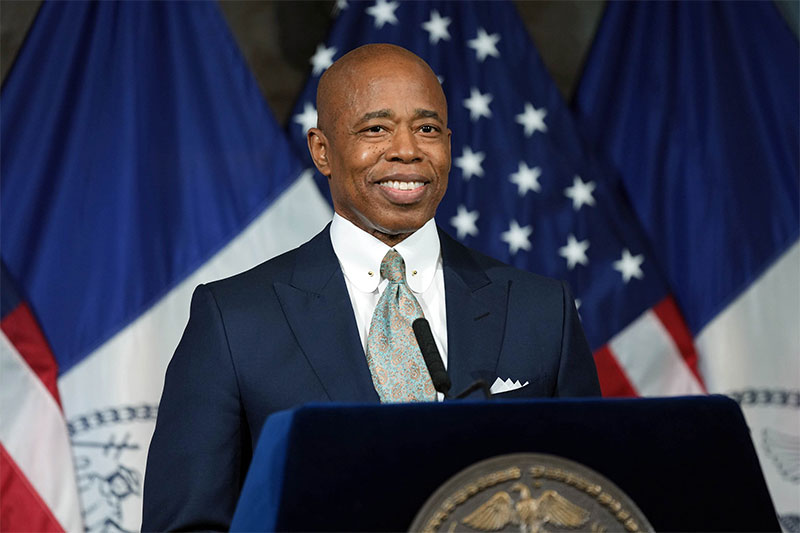New York City to Slash Food Emissions 33% ‘Using Every Option on the Menu’
4 Mins Read
New York City’s Mayor Eric Adams says the city will reduce carbon emissions from food purchases by 33 percent across its agencies by 2030.
The news comes as it has released its first integrated greenhouse gas inventory, which includes emissions from food production and consumption. According to the inventory, the city’s buildings are the largest source of greenhouse gas emissions, accounting for 35 percent of emissions, followed by transportation at 21 percent, and food at 20 percent.
‘Using every option on the menu’
In response to this new inventory, the city will reduce carbon emissions from food purchases by 33 percent — a commitment that includes launching a corporate challenge that will require the private sector to cut their food emissions by 25 percent within the same time period.
The city’s greenhouse gas inventory was developed by the Mayor’s Office of Climate & Environmental Justice (MOCEJ). The inventory includes emissions involved in the production of goods and services consumed in New York City, whether or not that production occurs within the city.

The largest contributors to food-related emissions are meat, poultry, fish, eggs, and dairy products, the inventory says. Increasing low-carbon food, such as fruits, vegetables, grains, and legumes, can significantly reduce the city’s emissions.
Mayor Adams, who follows a predominantly plant-based diet, explained that the city’s initiative to reduce food-based carbon emissions by 33 percent is aimed at reducing the overall impact of food on the environment.
“New York City is leading the world when it comes to combating climate change, because we’re using every option on the menu in our fight — and that includes changing our menus, too,” the Mayor said in a statement. “We’ve already made great strides in reducing our food emissions by leading with plant-based meals in our public hospitals and introducing Plant-Powered Fridays in our public schools. Now, we know we need to go further.”
The integrated inventory was modeled by EcoDataLab as part of an ongoing project coordinated by C40, which is working with cities to identify urban consumption indicators for data-driven climate action and measurement.
Chief Climate Officer and DEP Commissioner Rohit T. Aggarwala says the integrated inventory gives the city clearer knowledge of food’s role and the full scope of actions the government can take. “We have long known about buildings and transportation’s role in emissions, and this integrated inventory gives us clearer knowledge of food’s role, and the full scope of actions the government can take.”
A healthier, plant-forward city
The report emphasizes that the relationship between what people eat and its effect on climate change and the environment is well known. The city’s public hospitals and schools are already taking action by serving plant-based meals as the default option, reducing food-based carbon emissions by 36 percent as of February 2023. The city introduced Plant-Powered Fridays in its public schools last year, emphasizing the central role that healthy, low-carbon options must have on individuals’ plates.

Deputy Mayor for Health and Human Services Anne Williams-Isom expressed her support for the city’s strategy, stating that NYC Health + Hospitals is on track to serve more than 750,000 plant-based meals this year, which aligns with the city’s strategy around Lifestyle Medicine. She also highlighted the significant implications for planetary health, with food being the third-largest contributor to climate emissions across the city.
“Today’s announcement demonstrates the thoughtful and integrated approach the city is taking to bring healthy food to every person that might eat a meal as a patient in one of our public hospitals and how we are working to preserve and defend the environment for every New Yorker,” said Williams-Isom.
Last year, Mayor Adams announced that the city had signed onto the “C40 Good Food Cities Declaration” — an initiative signed by more than a dozen other cities around the world, including London, Los Angeles, Milan, Oslo, Paris, Quezon City, Seoul, Stockholm, Tokyo, and Toronto.
The goal of that initiative is to increase access to plant-forward food for city residents and halve their city’s respective food waste.




